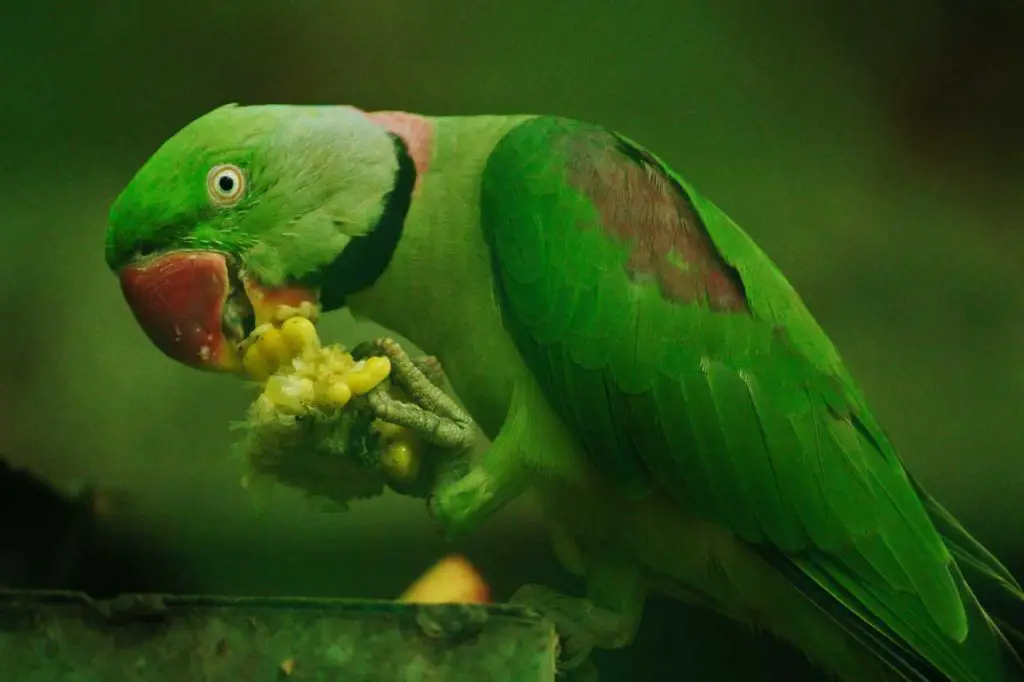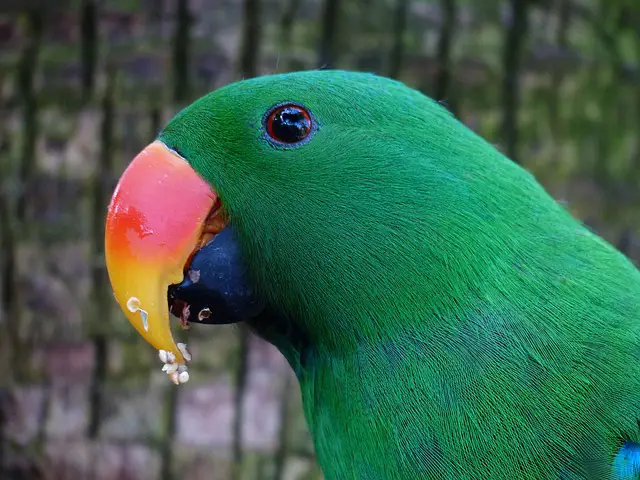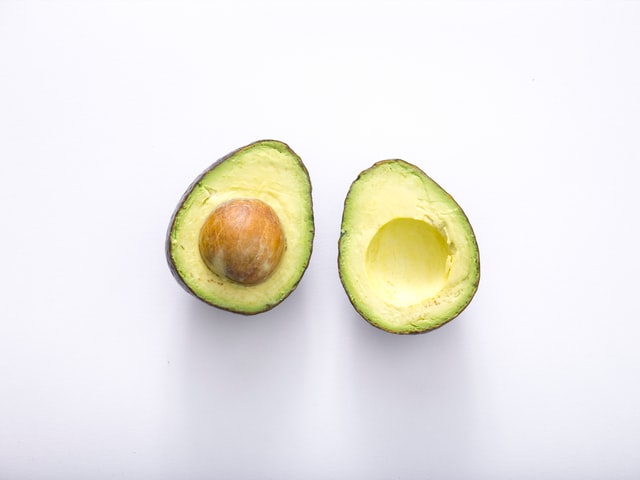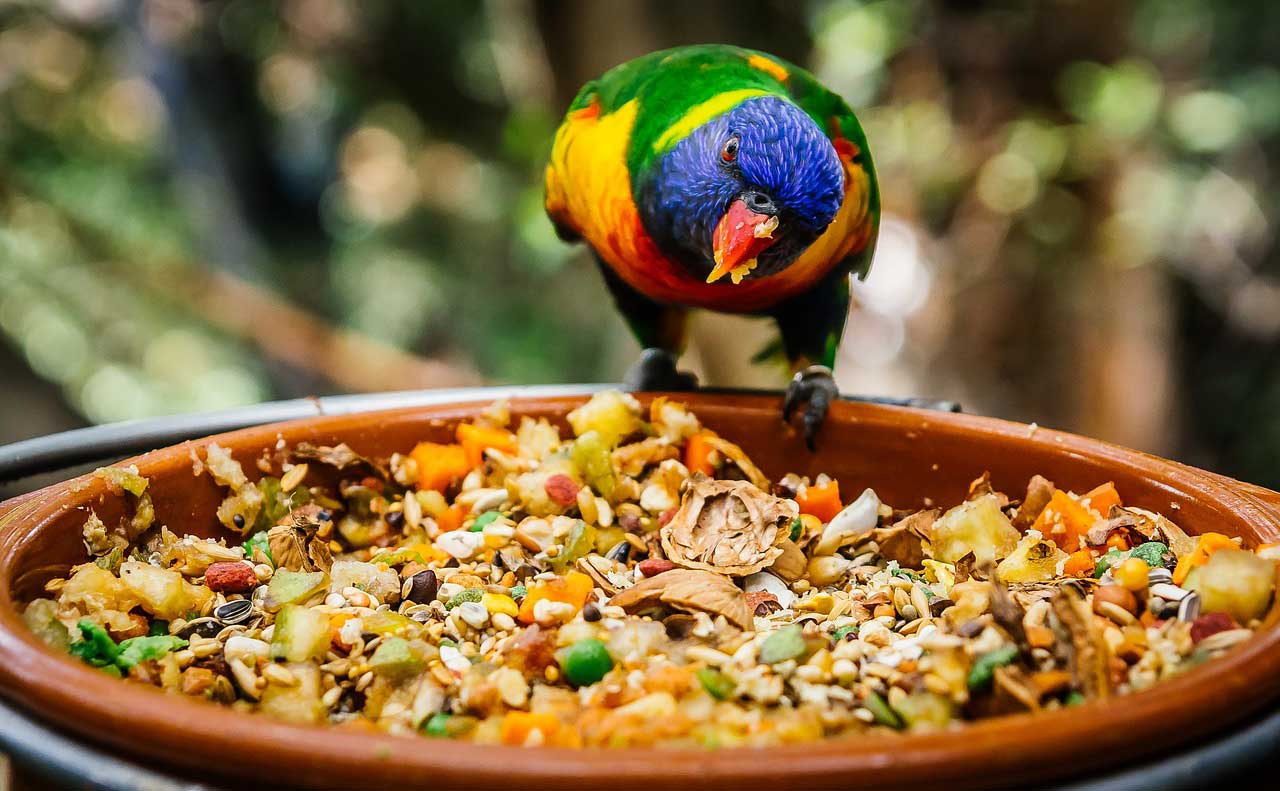What Should I Feed My Pet Bird | Bird food guide.
The very question arises to every new bird owner: what should I feed my pet bird? Is my feathery baby getting all the necessary nutrition from bird food those I am feeding? Well, you are not alone! Every bird person, new or old, has the same concern!

In the wild, the bird’s main activity is foraging food throughout the day. They fly miles after miles for food and water. They chew, shred, crack numerous plants, herbs, seeds, grasses or fruits for their daily dietary needs. Well, in captivity, the scenario is totally different. Pet birds are totally dependent on their caregiver. Thus selection of food is very important and crucial for their health.
It will be a good idea to provide food in such a way to mimic the feeding pattern of the birds in the wild. Some species usually eat in the morning and late afternoon whereas others will feed throughout the day. As foraging for birds is mentally and physically beneficiary, hence whenever possible, design foraging strategies while feeding your bird.
Feeding patterns are totally species dependent, birds might be very individualistic. Depending on health and breeding status, season, boredom and activity, birds may refuse once popular items and love other foods over time. Most birds love high fat items for example, nuts and seeds. Foods containing high fat should be limited to treats (e.g. training purpose) and may be used for some birds for breeding scenarios, cold or hot environments, during show performance or physically active circumstances.

Should I feed pellets to my pet bird?
Most of the vet would recommend a pelleted diet for your birds. As pellets are specifically formulated comprising all necessary nutrients in appropriate proportion, required for your birds. However, there are two groups you will find among bird keepers: one is ‘pellet group’ and another against pellets. Anti pellet groups believe that pellets have artificial ingredients which may create many health issues like kidney/liver failure.
Although, there is no scientific proof against such a claim. Another popular stance is, vets are recommending a pellet diet because they get commission from pellet manufacturing companies. If you can ensure all necessary nutrition from non pelleted food that is very much ok. Otherwise a pellet based diet is a very good option. Please, check the ingredients of pellets before giving it to your birds. Avoid which has added sugar or artificial sweeteners and colorings. If you are using seed mix, then ensure that it must contain at least 40% canary seed.
Some specific species of birds need higher omega-3 fatty acid and can be provided through supplementation. Keep in mind that lories are sensitive to iron storage disease and often require low iron diets.
General Bird food guide
Ensure an adequate supply of foods suitable for your pet bird. Provide a varied diet – you should combine both a high quality commercial food and some natural foods like fresh fruit, vegetables, flowers, green foods etc that are available and safe for your bird. Variation of foods provides mental stimulation for the birds and helps to fight with boredom. Always try to provide fresh and clean food, store in a way that prevents deterioration or spoilage.
It is a great idea to put a cuttlefish bone in the cage. It will provide calcium and other minerals to your baby as well as keep her beak on top condition.
Provide fresh clean water all the time. Water should be changed daily. Birds love to bathe in the drinking water bowl (although a separate bathing bowl is available). Water should be changed immediately after bathing .
Do Not Feed List:
Alcohol
Avocado

Breakfast Cereals (Sweetened, Vitamin Enriched)
Caffeine
Chocolate
Coffee
Dairy Products
Dried/ raw/ mature Uncooked Beans or Legumes
Fats & Oils
Fruit Stones/Pits/Pips of
Apple, Apricot, Aprium, Cherry, Lychee, Nectarine, Peach, Pear, Plum, Pluot, or Rambutan.
Fried, Fatty, Salty or Sugary Foods
Nutmeg, Onion, Peanuts, Rhubarb, Sorghum are Safe as raw but Unsafe soaked or sprouted
Sulfured Dried Fruits
Do not feed Tomato or Pepper Leaves or Stems (Fruits are Safe)
White Flour Based Foods (Pasta, Couscous, Bread, Tortillas, Crackers, etc.)
Avoid White Starch e. g. White Rice, White Potato
The practice of feeding animal-based proteins, fats, & cholesterol is an outdated one, as these items have been linked to the development of cardiovascular disease in parrots.
Do not soak or sprout Sorghum, also known as Milo, Mega Millet or Super Millet.
Avoid foods containing the artificial sweetener Xylitol.
Yucca/Cassava & Horseradish are known to be toxic for some animals, & may be best
avoided.
Garlic, Asparagus, Eggplant, or Cultivated Mushrooms are controversial items better not to feed.
Avoid fruits containing high sugar like grapes and bananas. Similarly, avoid farmed citrus fruits that are also high in sugar.
Avoid fruits that contain ingredients that may increase the risk of iron storage disease for certain susceptible species.
Avoid high glycemic foods like flour based foods. (glycemic foods rapidly turn to sugar in the blood shortly after ingestion). For the same reasons fruit juices are not recommended for feeding pets.
Species wise general bird food guide:
Cockatiels, Grass Parakeets, Budgerigars, Parrotlets, Lovebirds, Conures:
You may give uncooked and/or cracked grains (wheatberry is an exception). Smaller leafy vegetables for example, parsley, dill and cilantro tend to be favored over large leaf varieties. Peppers (not sure about black pepper) are an excellent source of vitamit-C. Birds love them, cut open to expose the seeds.
Sprouted seed contains huge nutritional values to your bird food and broccoli crowns are a plus! You can give blackberries, raspberries, figs, kiwi and cactus fruit to this group.
Small pellets can be used as 50% or less of the diet. Give 10% to 20% seed mix of the diet if not using pellets. Lovebirds are very active species, so keep an eye on the fat content of the food. Fat is essential for them but not too much.
Finches
Feed boiled egg crushed with eggshell, live mealworm or dried mealworm once or twice in a week. You can provide commercial egg foods also. Egg food feeding should be directly supervised by you. Remove the bowl after they have finished eating and clean the cage. Excess egg food easily attracts insects.
You can attach smaller leafy greens/herbs and broccoli crowns to the cage using a clothespin. Keep an eye if they collect these leafy greens for nest building. Finely chopped apples, peppers and squash are liked by some. They love to bite pieces of apple too. Apples are a good source of Vitamin-C and A. Small pellets can be used as 50% or less of the diet. Give 30% to 50% seed mix of the diet if not using pellets. While selecting seed mix, ensure at least 40% canary grass seed is present.
Large Conures (Sun, Nanday, Patagonian, etc)
You may try both uncooked and cooked spelt, oat groats, wheatberry, barley grains. Half cooked or steam yams and broccoli are good. They love raw cut peppers. Leafy veggies can be given chopping, or cut into thin strips. Use small to medium pellets as 50-60% of the diet. Sunflower seed, nuts, and safflower seed can be given as a treat.
Amazons, African Greys, Pionus, Macaws, Cockatoos
Cooked grains especially spelt, oat groats, wheatberry, barley are preferred. Raw or lightly cooked/steamed yams, pumpkin and broccoli are excellent items. Try chopped or whole peppers, squash, zucchini, etc. Give whole or chopped fruits. Add cooked beans and sprouts to a mix. Some macaws and cockatoos have special dietary requirements that need special attention and are not covered in this article. Use small to medium pellets as 50-60% of the diet.
Pet Bird Food Advice for New Bird Owner
If you are a new bird owner, then ask the breeder or previous owner about food habits of the bird. Do not change the food pattern suddenly unless you want a dead bird. Slowly change to a healthier diet.
Do not rush, do not overthink about raw/fresh food. For a healthier diet just look for colors: dark green, red, orange. Red colored vegetables contain vitamin A. Dark green vegetables contain vitamin B complex as well as other vital nutrients.
Provide what you have in your hands. You have bell pepper, squash, pumpkin? Good, cut them or throw them into a food processor and serve. If you are a busy person, then make a batch of raw/fresh food (fresh food popularly known as chops) and store it in the freezer. A good combination of fresh food, pellets/ seed mix will help to give your companion bird as many healthy years as possible.
Happy parenting!
